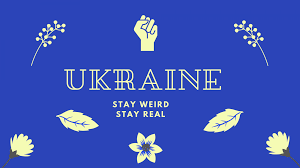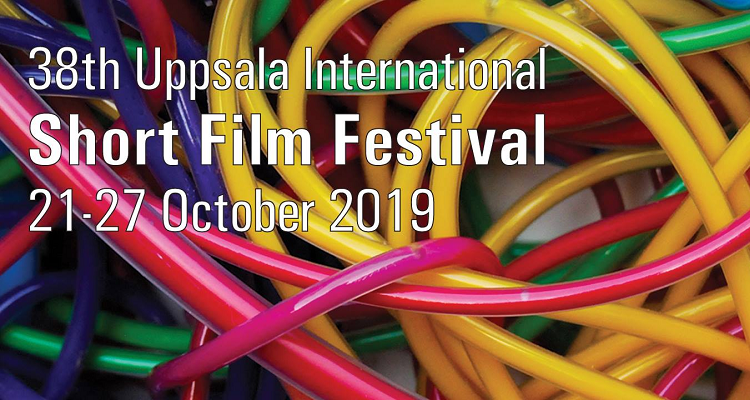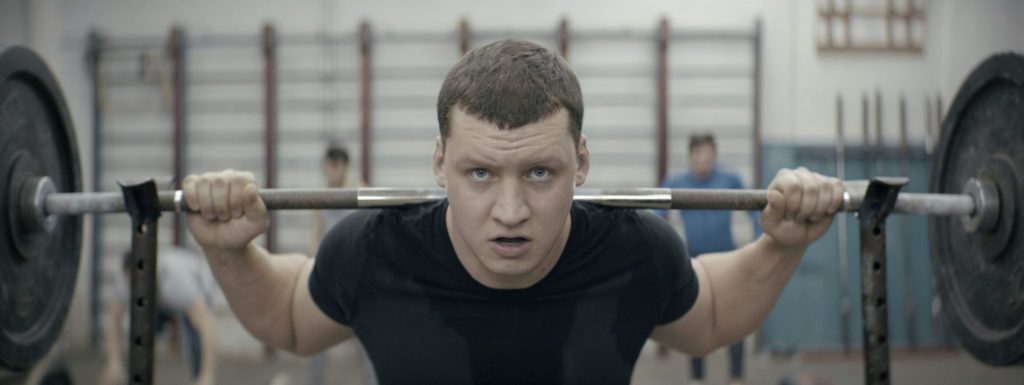Programme overview: Ukraine Stay Real & Ukraine Stay Weird (Uppsala International Short Film Festival)
“It’s weird. But it’s real.” This is a quote from Uppsala International Short Film Festival’s catalog that opens the introduction text about this year’s special programme double bill Ukraine Stay Real and Ukraine Stay Weird, curated by Olha Reiter from Lviv International Short Film Festival Wiz-Art. And there is no better way to describe the weird reality (and the real weirdness) of contemporary Ukraine.

It is a country whose contemporary history is marked by revolutions and revolution attempts, pro-Russian or pro-Western, but predominantly populist governments and the life that rarely gets easier for the ordinary people. Not to mention the ongoing war in the eastern part of the country. The weirdness can be hard to bear, but it also has its charms, which are is reflected and even highlighted in this retrospective where some of the titles could be comfortably programmed in either of the “weird” and “real” sub-categories.
“Real” category focuses on the events between the Revolution of Dignity (known as Maidan Revolution from the media) and the rave party at the club five years later. It includes three documentaries, one short fiction and one animation. First of the documentaries, Faces (Nikon Romanchenko, 2014) cover the events on and around Maidan Square in the revolutionary times directly at the spot, focusing on the people in the crowd rather than chronicling specific events of the aforementioned civil unrest. Romanchenko is a keen observer with a dash of humour to set the demolition of Lenin’s monument in Kiev to the sound of The Internationale, the anthem of the communist movement.
The other interesting thing hinted here, is the rubble left after the unrest and violence, but it comes more to life with other two documentary titles. Diorama (Tetiana Komieivea and Zoya Laktionova, 2018) paints the picture of once prosperous and pleasant to live place Mariupol that was once known for its fishing industry and rich marine and continental wildlife. This lyrical, observational documentary takes its time (long shots of desolate places, usually in greyish tones) when it comes to pointing out the problem: the war brought mines and the mines brought pollution. Although de-mining of the seafront is a complicated procedure and the lack of budget to undertake it provides a convincing excuse, the place is dying out and it will soon be no more alive than a diorama of birds in the local museum.

The “rubble” and the “pollution” are more metaphorical in Documenting Cxema (Yarema Malaschuk and Roman Himey, 2019) that is set during the rave party at the titular club (opened after the Revolution) and its aftermath once the music (composed by Stanislav Tolkachev) is over and the human murmur starts. The directors are focusing on faces (again) of the young people winding down after the party, but the message is clear in a wider context: what’s left to do when the party (the revolution) is over?
The same topics are tackled in the fiction short In Joy (Maryna Roschyna, 2017) that opens with an improvised wedding of a young couple, Dima and Katya and continues by following her later on as a single mother during the day and an avid party-goer at night, until she reaches the point of no return and loses the little support she has. Rubble and rubbish, however, gets pretty physical in the animation Deep Love (Mykyta Lyskov, 2019) and comes in form of plastic bags that resemble birds and planes, falling onto people’s heads and dropping the atom bombs near and around Lenin’s monument.
Those two, especially the latter, could have also easily found their places also in the “weird” category of the programme, while at least three films could be also seen as observational takes on Ukraine’s reality. The most case is the documentary The Fall of Lenin (Svitlana Shymko, 2017), funded by British Council, The Guardian and Docu Days UA which is dealing with Lenin as the symbol of Soviet heritage in Ukraine that became unwanted. The Fall of Lenin is a collage born out of of the contemporary footage showing the destruction of the monuments, the archival footage of celebrations surrounding revealing of monuments and a documentary filmed at a spiritual session in which the participants have conjured the pessimistic spirit of the long-gone Soviet leader.
The other two are fiction films, but pretty grounded in reality. Weightlifter (Dmytro Sukholytkyi-Sobchuk, 2018) follows the life of the titular character Petya around the time of an important competition, slowly revealing his toxic character. Petya is afflicted by violence he suffered from his father and weightlifting is just a failed attempt to overcome it, but he is tempted to succumbs to it once he does not feel comfortable. Poetic take on reality and the relationship between two brothers that sometimes get violent is the topic of Without You / Sensiz (Nariman Aliev, 2015). The unique landscape and the colours of the sky and land that change over the course of a day are probably the strongest assets in this somewhat conventional, festival-friendly short road movie.

The place in the realm of weirdness is more than guaranteed for The Secret, The Boy, and The Girl (Oksana Kazmina, 2018), but its blend of weirdness is not something that could be restrained in the Ukraine context only. In this film, two adults portrayed by Kazmina and Anatoliy Belov (a muscian and the subject of Vadim Ilkov’s documentary My Father Is My Mother’s Brother) are playing like children while communicating in child rhymes. Kazmina’s intentions are quite clear: the woods as the only filming location symbolize Eden with all the child-like innocence that comes with it.
The weirdness of Mia Donna (Pavlo Ostrikov, 2018) is more deeply rooted in the local context, channeling the nervousness and the perpetual child-like state of the Ukranian society. What happens when a grown man married to a nervous woman turns into a young boy behind a curtain that ended up at the marketplace boutique from the circus. Probably it is not the weirdest thing that could be imagined, but Ostrikov keeps the straight face until the end, finding the humanity in the couple, unlike the life that surrounds them.
In the end, what do we learn? It is weird, but it is real. It is real, but it is weird. Violent, annoying, charming, making grown up people trapped in the state of perpetual childhood and youth. It feels like the party is over. And that it goes on. Ukraine. Cinema. Shorts. Diversity.
















